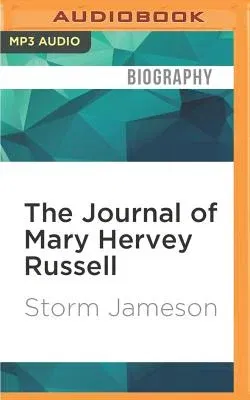In The Journal of Mary Hervey Russell, Storm Jameson has chosen a form
which enables her to use a rich supply both of public occurrences and
personal knowledge and experience for the exercise of that imaginative
observation which is characteristic of her best work. Whether she
describes a chance meeting in Paris with a new French poet, or the
reaction of delegates at the international conference of authors on the
very eve of war, or her association with innumerable refugee
intellectuals in London before and after Dunkirk; whether she is drawing
one of her many astute comparisons between her own compatriots and some
other people--generally the French--or comforting the wife of an
Austrian professor just swept into internment, or bearing with the
cynicism of some diplomat at the luncheon, she brings before us a
panorama rather than a scene or an incident. But the real human interest
of the audiobook is the thread of her own life running through it,
revealing in little intimate flashes, sometimes a reminiscence of
childhood, sometimes a delicately drawn portrait, like that of her
father, the old sea captain, and throughout the story the visionary
presence of the mother who for her has never ceased to live.
Storm Jameson (1891- 1986) born to a North Yorkshire family of
shipbuilders. Jameson's fiery mother, who bore three girls, encouraged
Storm (christened Margaret Storm) to pursue an academic education. After
being taught privately and at Scarborough municipal school she won one
of three county scholarships which enabled her to read English
Literature at Leeds University. She then went on to complete an MA in
European Drama at King's College London. During her career Jameson wrote
forty-five novels, numerous pamphlets, essays, and reviews, in an effort
to make money. Her personal life suffered, and her first marriage to
schoolmaster Charles Douglas Clarke was an unhappy one. After they
divorced in 1925, Jameson went on to marry Guy Chapman, a fellow author,
and remained with him despite her apparent rejection of normal domestic
life. Storm Jameson was always politically active, helping to publish a
Marxist journal in the British section of the International Union of
Revolutionary Writers in 1934 and attending anti-fascist rallies.

